Career Center
There are many skills that can be learned in high school that will help prepare you to fulfill the unique calling God has placed on your life. We’ve pulled a few careers and key courses together on this page as a quick reference guide to help you get started, but the options and opportunities are endless, including other careers and courses not listed here.

Advanced Public Speaking: This is an eighteen-week class designed for students who want to gain more instruction in public speaking and the evaluation of speeches. This course requires the student to study various types of speeches and both write and deliver several of his or her own. It is recommended that the student complete the Introduction to Public Speaking class before moving into this class, as it will build on some of the concepts learned.

Career Exploration: Carol Topp of HomeschoolCPA.com teaches an eight-week course designed to help your student consider the world of career possibilities. From seeking God’s will and inventorying their talents to understanding career clusters and job shadowing, Career Exploration helps your teens prepare for whatever future God has designed for them.

Editing Photos with GIMP: This course teaches timeless principles of digital image manipulation using the GNU Image Manipulation Program. The course covers editing basics and image manipulation tools, along with numerous filters available to set loose the student’s creativity in each photography.

How to Use Microsoft®Word® Beyond the Basics: This 16-week online training course is designed to provide guidance and instruction to users of Microsoft Word. Homeschool students of all ages can apply these computer skills, whether doing homework, creating a resume for work, typing a list of things to do, or writing the next bestselling novel. Each week’s lesson includes a video demonstration and practice assignments.

How to Write a Resume: This course walks students through the basics of resumes and resume writing in four easy-to-understand lessons. The first lesson describes what a resume is, why it is important, and how to use language effectively when writing a resume. The second lesson explores the main parts of a resume and offers examples and advice on these parts. The third lesson covers the four different types of resumes: chronological, functional, combination, and targeted. Students will learn when to use each type of resume and explore examples of each type. The fourth lesson offers guidelines and tips on formatting a resume.

LibreOffice Writer Basics: LibreOffice is free word processing software that meets many needs in both the home and in numerous places of employment. LibreOffice Writer Basics introduces students to installing the program, the toolbars, list formatting, headings, images, shapes, and fonts. Video instruction and printable assignments are included.

Public Speaking (Introduction): Homeschool and recent Biola University graduate Rebekah Bell has excelled as a young public and debate speaker in national competitions. This five-month introductory course teaches the basics of public speaking and the several types of speeches.

Starting a Micro Business (For Teens): Carol Topp’s second eight-week class with SchoolhouseTeachers.com, Starting a Microbusiness (for Teens), looks at what can be learned from starting a micro business, how to find your ideas and make a business plan, how to market your business, and more.

What’s Next? Discovering God’s Will for Your Life: Searching for the next step in life can be exciting yet overwhelming, intriguing yet stressful, adventurous yet painful. “What’s next?” is a question everyone asks and struggles with at some point. For some, “What’s next?” is a question of dreams with possibilities and potential. For others, the question is stressful, and the answer may require a major transition, like moving away from family or changing jobs. Anyone asking, "What's next?" is not alone. In this six-session course, students discover God's will for their lives as they examine the lives of people in the Bible, such as Ruth and Esther.

Accounting 101 is designed to equip students with the mastery of accounting fundamentals they will need to be prepared for their college classes while presenting these concepts in easy-to-digest ways. Its goal is to help students appreciate the state of the industry and the world of finance as a whole in such a way as to be able to operate from a Christian worldview to effect positive change if they choose an accounting or other business career. Concepts are presented in units, with each unit being broken down into weekly lessons.

Classical Archaeology: Join archaeologist Regan Barr as he leads an expedition to the ancient world. Through this exceptional course, complete with online resources and personal photos, students will gain an understanding of archaeology, including its uses and limitations. They will explore the reasons why cities like Rome and Athens have survived while others like Ephesus and Miletus were abandoned centuries ago.

Drive Thru History: Bible Unearthed – Biblical Archaeology: This 12-part series introduces the world of archaeology in the Holy Land, exploring the history, importance, and impact of archaeology. The videos feature artifacts, models, and sites filmed throughout Israel and the Mediterranean region and show the basic tools, technologies, and discoveries of archaeology, making the Bible come alive.

Take a look at all of our Art classes!
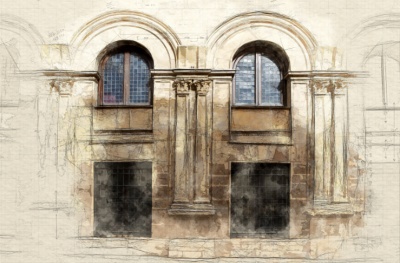
Introduction to Architecture with Tammie Bairen is a thirty-six week class that discusses some basic components of architecture as well as various structures including skyscrapers, bridges, cathedrals, homes, castles, and sports arenas. Students will learn about various aspects of each structure, including the marvel of its inception at that particular point in history, its function, the architects (where applicable) responsible for its creation, and the science behind its stability.

Photography: Michele Peterson’s thirty weekly lessons teach students how to see the way their camera “sees” and then to use that knowledge to create a recipe for the perfect picture.

Photography Challenge: Forty-eight weekly photography challenges get homeschool students of all ages and skill levels thinking outside of the box and give them some creative springboards to capture their best shots yet. Each challenge can be tried again and again in any order as students' photography skills improve.
Most engineering degrees will require competency in math up through Calculus and in science up through Physics. Certain engineering fields may require skills in Architecture, Biology, Chemistry, Geology, Physical Science, Computer Programming, Statistics, and more. In addition, a basic understanding of written communication will go a long way toward facilitating the studies.
Math

Geometry in Real Life: Designed so every student can be successful in learning geometry concepts and applications, our Geometry homeschool math course focuses on real-world applications and provides fun and inventive ways to learn the math rather than just memorize it. Because reviewing is an important part of learning, wherever possible, this course uses a spiral approach to teaching, allowing students to revisit subjects in different circumstances to show how it all works together. Each week's lessons include easy-to-understand text that delves into what formulas mean and how they were created, along with practice problems and a detailed answer key.

Algebra 2: Algebra 2 is a full-year course designed for students who have successfully completed Algebra 1. It includes textbook reading, practice problems, homework, and unit tests. Key vocabulary is highlighted, and study tips are included. An answer key is also included.

Statistics: Statistics are used in every field, from the census to the lottery, investments, science, computing, and television. In fact, you would be hard-pressed to find a field in which statistics are not used. Understanding how statistics are determined will help you gauge the reliability of information presented to you. This eighteen-week course with instruction, worksheets, and an additional lab explains how statistics are calculated and how they are used.

Trigonometry: This in-depth trigonometry course provides more than sixty lessons that include ample illustrations, multiple assignments, and step-by-step solutions as well as gradable tests. Answer keys are included, and Mrs. Candler is available to answer questions by email.
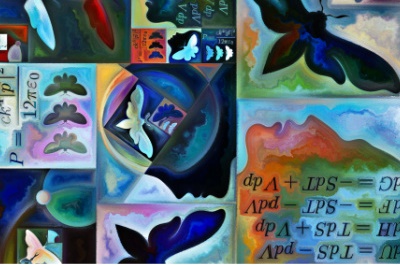
Precalculus: This 36-week course is designed for students who have completed Algebra 1, Algebra 2, and trigonometry. This course covers relations and functions, linear and quadratic functions, polynomial and rational functions, exponential and logarithmic functions, conics, systems of equations, matrices, sequences, and binomial theorem. It concludes with a final test.
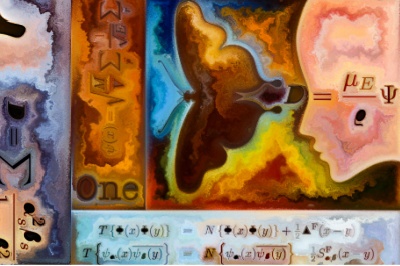
Intro to Calculus: Derivatives and Integrals: Has your teen conquered the traditional high school math sequence and is ready for more? Intro to Calculus: Derivatives and Integrals provides students with a foundation in early calculus concepts. Whether aiming for an engineering degree or planning to take the AP Math exam, your student can use this course as a next step along the homeschool math journey.
Science

Red Wagon Physical Science for Middle School: This physical science course is taught through online pre-recorded videos. Text instructions along with additional videos, experiments, and online reading are included in order to provide students with the knowledge that science was created by God. This is done through a study of the atmosphere, Earth, weather, Newton’s Laws, sound, light, and more.

Physical Science: Through downloadable and online readings, experiments/labs, and hands-on projects, students explore the three main branches of physical science—chemistry, physics, and earth science. Topics such as elements, acids and bases, chemical formulas, force and motion, work and energy, electricity and magnetism, geology, oceanography, meteorology, astronomy, and more are explored.

Red Wagon Biology for High School: This biology course is taught through online pre-recorded videos. Text instructions along with additional videos, experiments, and online reading are included in order to provide students with the knowledge that science was created by God. This is done through a study of the various kingdoms including Monera, Fungi, and Plantae; cellular respiration, ecology, and genetics. A discussion of evolution and its implausibility is provided.

General Biology by Core Academy: This is a general high school biology course. The first semester includes a special introduction to science, human biology, ecology, and zoology. In the second semester, students will learn about botany, microbiology, cell biology, genetics, and origins. This course includes approximately 25 hours of video instruction, supplemental readings, and answer keys. A Christian, creationist worldview informs the lessons where appropriate.

Geology: Patrick Nurre, owner of Northwest Treasures and a popular conference speaker, is offering audio/video slideshows and weekly worksheets to help you discover the amazing world that God has created. Unit 1 covering Rocks and Minerals offers sixteen weekly lessons explaining how to identify various types of rocks, the roles each type of rock plays in our world, and how geology points to a Creator. Unit 2 covering the Geology of Our National Parks offers sixteen weekly lessons. From glaciers to volcanoes, explore the vast wealth of geology found in the United States National Park System.

Red Wagon Chemistry for High School: This in-depth chemistry course is taught through online pre-recorded videos. Text instructions along with additional videos, experiments, and online reading teach students about solids, liquids, and gases; the states of matter; the periodic table and the naming of elements, atomic structure and molecular structure. Reactions between chemicals is discussed, as well as thermodynamics and kinetics.

Advanced Chemistry: This advanced chemistry course covers all the basic topics of general chemistry. As an advanced course, it is suitable for grades 11-12 and would be best appreciated by a student who has already had a basic introduction to chemistry. This course includes approximately 25 hours of video instruction, supplemental readings, extensive practice exercises, and answer keys.

Red Wagon Physics for High School: This physics course is taught through online pre-recorded videos. Text instructions along with additional videos, experiments, and online reading provide students with an understanding of velocity, acceleration, and displacement. They are taught how to understand and apply Newton’s Laws. They will also be shown how physics and math are connected. It is recommended the student complete algebra 1 and geometry and be familiar with sine, cosine, and tangent, as the later chapters include higher level math.
Other

Hands-On Architecture: Hands-On-Architecture provides step-by-step architecture lessons in many different mediums for the lower elementary through middle school student. Unit 1 will introduce students to exciting, easy-to-find materials they will use to make fun architectural structures, Unit 2 will lead students through the design of their own HOME, and Unit 3 will lead students through the design of a ZOO!

Introduction to Architecture: This course covers basic components of architecture, as well as various structures, including skyscrapers, bridges, cathedrals, homes, castles, and sports arenas. Students will learn about aspects of each structure, including the marvel of its inception at that particular point in history, its function, the architects (where applicable) responsible for its creation, and the science behind its stability.

How to Do Research: How to Do Research guides students through the entire research process to create a unique research project. Students will learn about planning their research, conducting their research, evaluating their sources, compiling and organizing their data, reviewing their work, and presenting their information. Topics such as plagiarism, keywords, using both paper and electronic sources, primary and secondary resources, and more are also explored in this language arts course for upper elementary through middle school homeschool students.

Writing Mechanics: Writing Mechanics teaches writing in an engaging way that helps students improve the quality of their writing by improving the quality of each sentence that goes into their writing. Your student will learn to “build” sentences that are more expressive and descriptive, which in turn will help them better communicate their point in all of the writing they do.

Web Game Design: In the Web Game Design class, students are going to learn how to create some simple games right in their web browser. This is a programming-centric class, meaning the students will be writing (typing) code to make things happen. The course will cover topics including starting a JavaScript game, handling images and sound effects, input fields, 2D frame animation, virtual worlds, and much more.

Filmmaking: Director/Producer/Co-Writer of Advent Film Group, George Escobar offers thirty-three weekly lessons which take a detailed look at various aspects of the Christian filmmaking industry, including choosing the right camera, lighting, audio, production and post-production, and finding God’s stories.

Introduction to Forensic Science: God has given us science to look at the world around us, and the ability to use what we learn to help the justice system stop the guilty parties. Using common household materials and approaching science from a Christian perspective, Introduction to Forensic Science investigates the process of testing or analyzing materials found at a crime scene and explores how forensic scientists evaluate evidence.
<p>

Digital Art and Product Designs for Small Businesses: This digital art course introduces students to the world of possibilities for putting their artistic and creative skills to work online in any number of fields. The course covers Photoshop® tools and techniques, rules for governing images, where to find them, how to edit and manipulate images, fonts and word art, logos and banner ads, images for social media branding, product design, and more.

Inkscape Online Adventure: This digital art course provides more than 10.5 hours of video demonstrations with step-by-step instructions for students who want to learn how to create vector graphics with Inkscape, a free online drawing tool. It teaches students how to master the basic tools and concepts essential to vector graphics, takes the mystery and frustration out of the pen and node tools, helps students become familiar with all the tools and features of Inkscape, builds confidence, and teaches skills and concepts that can carry over to other vector programs such as Illustrator.

Introduction to Graphic Design is an excellent guide to the basics of graphic design for your middle school and high school students. It will teach students how to recognize quality graphic designs in the products they see and interact with every day, what makes certain designs stand out, how to design an eye-catching ad that communicates a specific message to a target audience, and what types of jobs are available for graphic designers today.

Digital Art and Product Designs for Small Businesses: This digital art course introduces students to the world of possibilities for putting their artistic and creative skills to work online in any number of fields. The course covers Photoshop® tools and techniques, rules for governing images, where to find them, how to edit and manipulate images, fonts and word art, logos and banner ads, images for social media branding, product design, and more.

Internet Entrepreneurship for Teens: Do you have a teen who is itching to start his or her own business? Do you have a child who loves to dream big and reach for the stars? We would love to introduce you to Dana Beasley and her class—Become an Internet Entrepreneur! Twenty-four weekly lessons help your teen learn how to start and promote a business and learn timeless business principles. Whether your teen actually starts his own business during this course or creates a mock business, he should be prepared to discover brand new ways to explore his God-given passions and purpose.

Podcasting to Change the World: This course walks you through what a podcast is and why you would want to start one; how to plan your podcast; how to create a system so you don't have to waste time repeating work with each and every podcast; how to handle cover art; how to prepare for your podcast; how to record, edit, and upload your podcast; and where to go now that you've created a podcast. It shows you the amazing opportunity you, as a podcaster, have to change the world.

Mock Trial: More than two dozen units are available in this course taught by attorney, wife, and homeschool mom Deborah Burton. Lessons are designed to help students learn about the law and participate in their own mock trials. Teacher helps are provided.

Logic: Lisa Duffy’s fifteen-week course teaches students how to identify common fallacies such as the appeal to pity, appeal to fear, begging the question, hasty generalization, and many more.

Constitution and Bill of Rights: This class about the Constitution and Bill of Rights is taught by Attorney Kevin Smith, a husband and father who works with the Alliance Defending Freedom as well as operates his own law firm. Sixteen weekly lessons contain analysis and study of the Constitution and Bill of Rights, prompts for independent study, term paper assignments, and exams. A Teacher’s Handbook and answer key is included.
For more suggestions regarding a legal career, please visit our Pre-Law Focused Learning Center.

Explore all of our Health and Fitness classes!

Advanced Chemistry: This advanced chemistry course covers all the basic topics of general chemistry. As an advanced course, it is suitable for grades 11-12 and would be best appreciated by a student who has already had a basic introduction to chemistry. This course includes approximately 25 hours of video instruction, supplemental readings, extensive practice exercises, and answer keys.

General Biology by Core Academy: This is a general high school biology course. The first semester includes a special introduction to science, human biology, ecology, and zoology. In the second semester, students will learn about botany, microbiology, cell biology, genetics, and origins. This course includes approximately 25 hours of video instruction, supplemental readings, and answer keys. A Christian, creationist worldview informs the lessons where appropriate.

Life Science: This full-year high school science course studies the basic topics of life science including the scientific method, molecules, organic and inorganic compounds, cell structure and function, cell division, plant and animal tissue, support and transportation systems in plants and animals, biospheres and ecosystems, biodiversity, and classification.
For more suggestions regarding a career in medicine, please visit our Pre-Med Focused Learning Center.
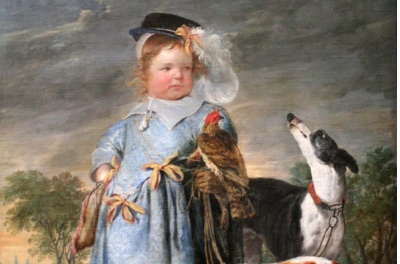
Art & History: Interconnected: What did Michelangelo have to do with the Reformation? How did the Baroque period send the Pilgrims high-tailing it to the New World? Nothing happens in a vacuum. History affects art, and sometimes, art affects history. This course explores how world events have impacted art and how different artists communicate their message through their art.
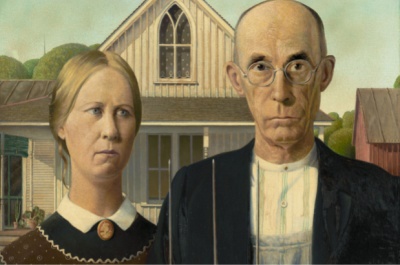
Discovering Art History: Discovering Art History helps students learn to group paintings or other artwork by style, subject, or artist and introduces several different careers in the field of art. Students will learn about various styles and artists and have a chance to practice each style learned. Numerous art-related books available through many libraries are also suggested to enhance learning.
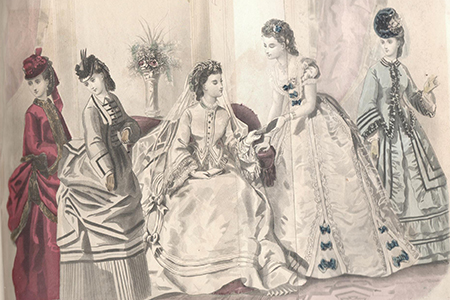
Fashions in History is a multi-level multidisciplinary study for young ladies, focusing on women and children’s fashions from the 18th century to 1910. In addition to readings on the main topic, the study contains optional readings on dolls and 19th-century culture for students of all levels, conversations about museum and archival topics, historic needlework, historic recipes, coloring pages, practice in computer skills, vocabulary, clothespin-doll-making projects, and a short course in hand-sewing and embroidery. Any part of this curriculum may be used to supplement a regular history or home economics course, or it may be used as an elective course.

Advanced Music Theory: This advanced music theory course is designed for the student who has already mastered the skills presented in Music Theory I and II. It explores scales, intervals, chords, and modes, providing students with a firm understanding of music theory.

Appreciating the Gift of Music: This fun introduction to music class for kindergarteners focuses on helping children enjoy music. There are lessons about instruments (including their own bodies!), three well-known instrumental pieces, and the difference between rhythm and beat. Ample instruction and guidance is provided for the parent so you can confidently enjoy sharing this course with your children even if you don’t know an accordion from a xylophone.

Beginner Drum Lessons: Through text and video lessons, this course teaches students to play the drums while also helping them understand the elements of music such as melody, harmony, and rhythm.

Beginning Violin: Nancy Blue’s Beginning Violin class “Strings of Praise” will have you and your children learning to play the violin before you know it! Nancy’s thirty-two weekly lessons teach beginning violin skills through video instruction and primarily uses the Suzuki method.

Composing with the Masters is an advanced music course designed to help students recognize elements in compositions from various masters and begin to incorporate them into their own musical compositions. Composers from medieval through modern times are studied.

Fun with Music: Fun with Music is a collection of games designed to help students of all ages learn important musical terminology including note names, music intervals and key signatures, symbols, and other terms. These games can be adapted in countless ways to fit your student’s age and interest level.
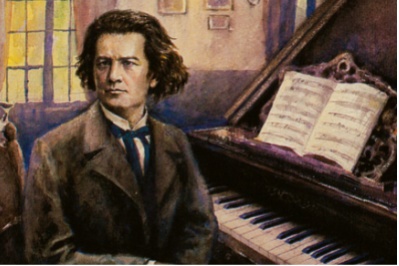
Great Musicians: This course is based on a series of short books originally published in the early 1900s about twelve great musicians. Each book is written in simple, easy-to-understand language that brings the musicians to life for the readers. Each book concludes with simple comprehension questions and an optional story activity.

Guitar: Jerry Jennings, recording artist, performer, teacher, and author, delivers twenty-eight weekly lessons using video and written material to help students with an interest in playing the guitar develop a strong foundation of skills on which to build.

If It Isn’t Baroque . . . The History of Western Music: Michelle Martin, who also teaches Music Theory I & II, is the instructor for this twelve-week course that explores the history of Western music from ancient times through the modern day. The topics include the origins of music, musical styles from history, key composers and developments in musical history, and differences in various musical styles.
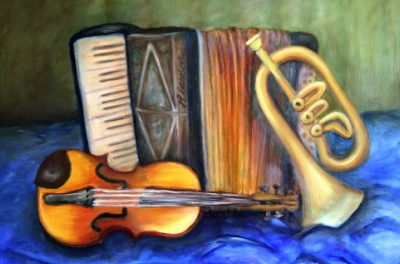
Music Theory I & II: Music is a language, and in order to fully appreciate it, one first needs to understand how it works. Each sixteen-week course teaches key terminology and concepts in music theory and illustrates these concepts with pieces of classical music.

Music Throughout History: In Music Throughout History, students study the history of music from the medieval period through modern times. The course begins with a look at music around the world and then moves to a study of how music in America has changed and developed over time. Both famous and lesser-known composers and hymn writers are studied.

Music/Voice: Joy Sikorski, award-winning film composer, performer, educator, and founder of both SingBabySing and Singing Mastermind, equips your entire family to free their voices and replace fear with confidence through monthly lessons.

Advanced Apologetics: This in-depth apologetics course begins with an introduction to apologetics and then moves through traditional approaches to apologetics, general apologetics, foundations for apologetics, philosophical apologetics, historical apologetics, classical apologetics, and advanced apologetics.

Christian Values in J.R.R. Tolkien: This 18-week class leads your student on an in-depth study of six Tolkien works as well as a biography of the man behind the stories. These studies are designed to challenge your student to think deeply and critically about the truths presented. Two short papers and one longer paper (10-12 pages) are also required.
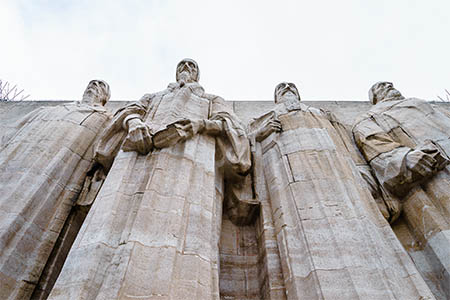
Church History begins with the foundations of the church in the Old Testament and continues through to the present day. Weekly text-based lessons are each broken into four daily assignments and will involve adding dates to timelines, making maps, reading works from all periods of history, and short-answer writing to provoke thought and deeper comprehension while students read.
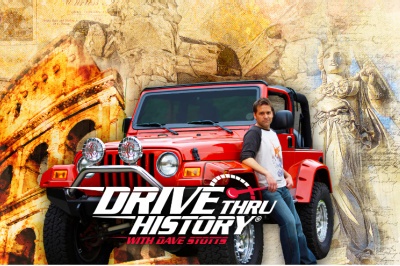
Drive Thru History: Ancient History: Explore more than 2,500 years of history with host Dave Stotts as he takes you on a whirlwind tour of ancient history with a special focus on Rome, Greece, Turkey, and Byzantium. Visit the Forum, the Parthenon, Mars Hill, Corinth, Istanbul, and so much more! Plus, enjoy a special set of worksheets available only on SchoolhouseTeachers.com!
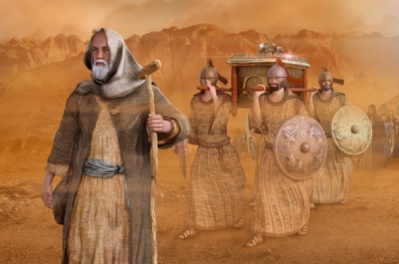
Geography of the Bible is a series of seventeen videos that explores the ancient lands of the patriarchs, Israel at the time of Jesus, and the lands traveled to and written about in the epistles and Revelation. Through videos and worksheets, students will take a closer look at the lands of the Bible, the people who lived there, and the many incredible events that took place in that region that continue to shape our world today.

Methods of Bible Study: Many students know Bible study is important, but sometimes understanding how to read and study the Bible in a way that helps them truly understand it can be a challenge. This course challenges preteens and teens to go deeper in their study of God’s Word, looks at four ways to study Scripture, and walks them through nine Bible studies.

Philosophy & Ethics: This in-depth philosophy course begins with an introduction to Christian philosophy and the philosophy of religion and then continues into a detailed study of Christian ethics. It concludes with a series of lectures exploring the history of Christian thought from Plato through the modern day.
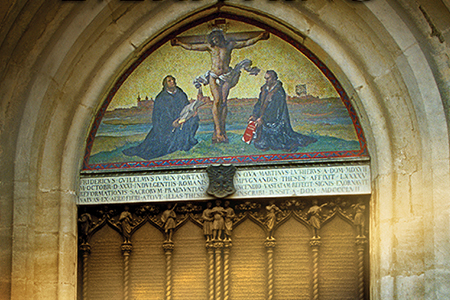
This Changed Everything: This video series is about the Protestant Reformation.

Worldviews in Literature: This course examines worldviews and how they manifest themselves in literature. Taught by Dr. Steven Hake, the Chair of the Department of Classical Liberal Arts and Director of the Literature major at Patrick Henry College in Purcellville, Virginia, this advanced literature study will look at how authors have answered the “big questions” of philosophy. There are discussion questions in the form of weekly written assignments for the student to complete, along with one-page journal entries and a ten-page final paper.

Worldviews, World Religions, & Cults: This incredible video course is a great resource for high schoolers who feel called into the ministry. The course is divided into five sections and covers topics including being a new pastor, dealing with conflict, building confidence in your leaders, ministering to families, discipling, global missions, and much more. It includes more than 300 video clips totaling over 22 hours of content and includes more than 1,000 study questions.

Photography: Michele Peterson’s thirty weekly lessons teach students how to see the way their camera “sees” and then to use that knowledge to create a recipe for the perfect picture.

Photography Challenge: Forty-eight weekly photography challenges get homeschool students of all ages and skill levels thinking outside of the box and give them some creative springboards to capture their best shots yet. Each challenge can be tried again and again in any order as students' photography skills improve.

Animal Science: This Animal Science homeschool curriculum is for middle school and high school students who want to learn more in-depth information concerning animal species, habitats, and care. Taught by a practicing veterinarian, twenty-seven weekly lessons cover animal classification, digestive systems, reproduction, food animals, companion animals, human responsibility toward animals, and preventative care in domestic animals.

Friendly Anatomy: Thorough knowledge of a subject area begins with a solid foundation. Veteran educator and large-animal veterinarian, Dr. Joey Hajda, builds this foundation with you in a gentle, friendly manner. Bone by bone, structure by structure, learn the anatomy of the bovine skeletal system. This is the perfect resource for the aspiring veterinarian or animal health technician.


